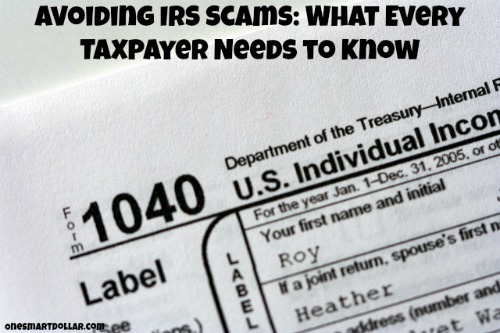
The only two things that are certain in life are death and taxes. Or are they? We think we should actually add a third thing to that list: tax scams.
Since everyone knows that we are all at the discretion of the tax man, there are many unethical people out there who are waiting to take advantage of you. Some will pretend to act on behalf of the IRS and take money from you while others will intercept your communications to the IRS to steal your confidential information and assume your identity.
Some programs and services are available to help you protect yourself against fraudulent activity, such as ADP Compliance Insights for businesses, but educating yourself about the potential scams is one of the best things you can do to avoid becoming a victim:
Threatening Phone Calls
In the few months following tax season, you might get a phone call from someone claiming to be an IRS representative and saying that you owe money. What will tip you off that you’re dealing with a scammer is that the person will be very aggressive about getting you to provide payment details over the phone and will make threats to try to intimidate you into doing so.
Scammers might yell and talk quickly to try to confuse you or make you feel scared about the potential consequences. Or they might threaten to expose your “debt” to your co-workers and neighbors or to report you to the authorities and have you arrested.
First, none of those things are possible. You have the right to confidentiality concerning any legitimate tax debts, and while legal action is possible, it would only come after many attempts to contact you and negotiate a settlement. Second, a legitimate tax collector would identify himself by name, ID number, and contact information and would provide details about how to pay your debt, such as an IRS address, and information about how to review the details of your case. Your first contact with an IRS auditor will almost always be by mail.
Phony Letters
Which brings us to the next way that scammers try to trick taxpayers: Phony letters.
Smart scammers know that the IRS usually contacts people by mail, and they try to appear legitimate by doing the same. They may even create a letterhead or envelope that looks like it’s officially from the IRS. But it’s important to remember that people can do just about anything with Photoshop.
A legitimate letter from the IRS will have specific details about why you owe what you do, such as failure to report income from a specific source or taking a specific tax credit that you should not have. A legitimate letter will also include an address to which you can send payment and the contact information for an auditor to send information disputing the findings. You can check the veracity of the information by looking up that address online.
Of course, all payments to the IRS will be made to the U.S. Treasury.
Any letters that ask for payment to another source or that do not include any of the above should send up red flags. If you are ever in doubt, just call your local IRS office to look up your tax information. If a real case is opened against you, they will be able to tell you.
Door-to-Door Scammers
A real IRS agent is never going to go door-to-door to get in touch with debtors. If anyone ever shows up at your door claiming to be from the IRS, do not let them in and call the authorities.
The more likely scenario you will encounter is having someone show up to your door claiming to help you get around paying the IRS or helping you to negotiate a lower settlement. Again, never trust anyone who comes to your door making these claims. Legitimate attorneys or tax professionals will never need to come to your door to get your business. They may send a letter or an email, but they will not show up at your house or business.
Identity Theft
Some tax scams you won’t even notice until months later. Some thieves may intercept your mail and steal your identifying details, such as your social security number and full name. They will then open up lines of credit in your name. If you don’t check your credit report regularly, you may never know that the theft has occurred.
You can protect yourself by filing your own taxes online using a secure connection, keeping your paperwork at home in a locked box, and shredding any documents with identifying information.
Don’t get taken by IRS scammers this tax season or beyond. Educate yourself on the common scams and take steps to protect yourself against them!
